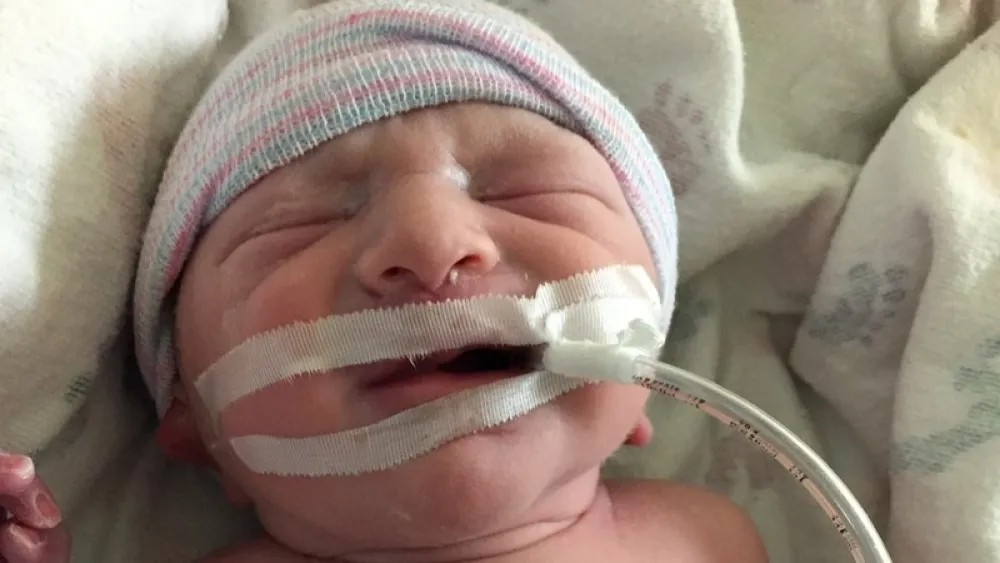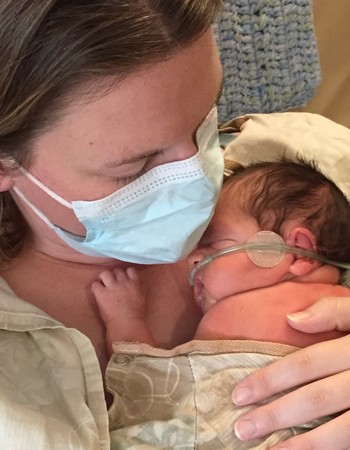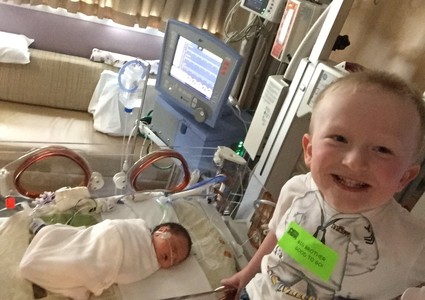




March for Babies and Give Others the Chance to Be 'a Total Miracle'


 You would never know that almost-4-year-old Colin Hancock spent his first 35 days of life in the Neonatal Intensive Care Unit (NICU) at Methodist Women’s Hospital.
You would never know that almost-4-year-old Colin Hancock spent his first 35 days of life in the Neonatal Intensive Care Unit (NICU) at Methodist Women’s Hospital.
According to Mom, Elizabeth Hancock, Colin is “super smart, super athletic and just amazing.”
Colin’s birth story
Shortly after Colin was born via cesarean section, he stopped breathing. He was resuscitated and placed on a ventilator, and his NICU journey began.
Elizabeth, who was diagnosed with preeclampsia, was still battling high blood pressure after her son was born. Her care team wanted to see her blood pressure drop some before allowing her to make her way to the NICU to see her baby.
 Finally, a little over 48 hours after Colin was born, Elizabeth got to see and hold him for the first time – something she desperately needed. Battling a bit of postpartum depression, Elizabeth was trying to navigate all the demands of a NICU mom while caring for a toddler at home – a toddler who was also born prematurely.
Finally, a little over 48 hours after Colin was born, Elizabeth got to see and hold him for the first time – something she desperately needed. Battling a bit of postpartum depression, Elizabeth was trying to navigate all the demands of a NICU mom while caring for a toddler at home – a toddler who was also born prematurely.
“There’s just a lot of … everything. You’re trying to figure out who’s going to stay with Colin in the NICU and who’s going to be home with his brother. You’re sleep deprived for a reason other than being up all night with a baby you could bring home. You’re frustrated. You’re up in the middle of the night, pumping and obsessing over milk volume. It was just a lot.”
Even though Colin was born six weeks early, Elizabeth never doubted that her baby would be OK.
 “I was lucky to be surrounded by the people at Methodist,” Elizabeth added. “We were shepherded through a very stressful time.”
“I was lucky to be surrounded by the people at Methodist,” Elizabeth added. “We were shepherded through a very stressful time.”
But she did struggle with the constant worry of: “Is he going to have some developmental delays or experience any kind of effects from being born early?”
She also struggled with guilt.
“There must be something I did to cause this,” she thought. “After all, I’m the one who grew this little person.”
Getting involved
Elizabeth is fully aware that premature birth contributes to an overwhelming number of infant deaths across the world. And her concern over Colin’s development was warranted, as some premature babies do experience health problems, disabilities and chronic conditions later in life.
This is why she considers Colin “a total miracle.” Why the phrase “As long as they’re healthy” takes on such deep meaning for her. It’s why she’s participating in the 2019 March of Dimes March for Babies event in Omaha – helping give other babies the kind of care and outcomes her baby received. And finally, it’s why she’s encouraging everyone she knows to join her.
March of Dimes has made enormous strides in not only treating preterm labor but also preventing it. The organization supports lifesaving research and provides comfort, support and education to families experiencing the physical and emotional challenges that often accompany premature babies.
Did you know?
March of Dimes funding has helped medical professionals develop lung surfactant therapy for babies who suffer from respiratory distress syndrome (RDS). Since the therapy was rolled out in 1990, the number of deaths from RDS have decreased by half.
In 2018, 140 patients at Methodist Women’s Hospital received this therapy.
March for Babies, which is sponsored by Methodist Health System, is aimed at spreading awareness of the need that exists and the efforts being made.

“We’re all touched by children in some portion of our lives,” Elizabeth said. “Whether it’s our nieces, nephews, neighbors or fellow families at church. Even if you don’t have babies of your own, you never know when someone you know or love is going to need to take advantage of the resources March of Dimes provides.”
More Resources
- Learn more about the mission of March of Dimes
- Learn more about the NICU at Methodist Women's Hospital


